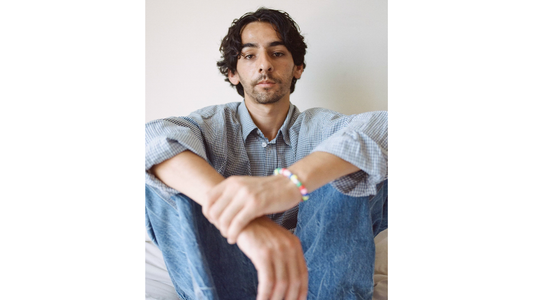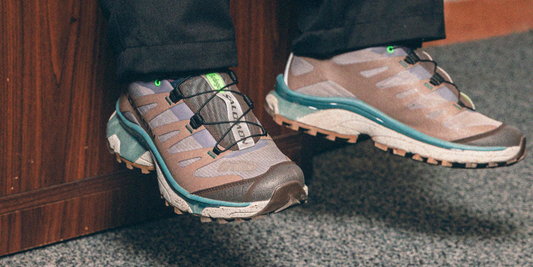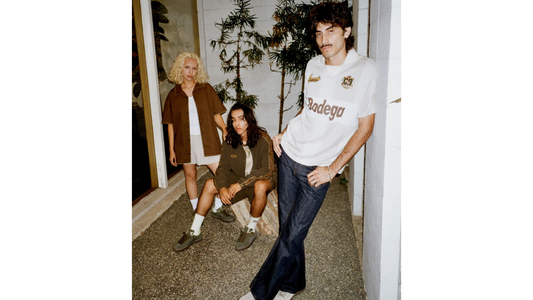You started learning the craft at 17 yrs old at the Scratch DJ academy. Was there a specific experience or artist that motivated you to learn how to DJ?
I actually started DJ'ing at 17 when I still lived in the Bay Area where I grew up, but really got my chops down after moving to NYC in '07 and going to Scratch Academy. Man..I was at that place practicing so much, everyone started to think I worked there. Eventually they actually did hire me! But what really inspired me to start back in the Bay was DJ Qbert. I played classical piano very seriously my whole life, and I discovered scratching through him and the Invisibl Skratch Piklz. At the time, I was just excited to see people like me-- Asian Americans from the same neighborhood-- excelling in a space that wasn't historically ours. It made me feel like I could really do it too.
What was your first gig like ?
It was ages ago at this point, but I'm pretty sure it was an open mic night with other Scratch DJ Academy students in NYC. I just remember being super nervous and wanting perfection the way I always did playing piano. Pretty sure I planned the whole set, mixing points, and how I'd EQ everything in advance haha.
What were your goals in that first year of starting to play out?
I moved to NYC when I was 18 and supporting myself out there was a challenge. If not for that financial pressure, I might've just scratched and beat juggled in my bedroom forever. Luckily that pushed me out there, and the goals for the first year were simply to survive and not f**k it up!
You have unique perspective have toured extensively through China’s emerging hip hop scene opening for acts like Higher Brothers, YoungQueenz, Bohan Phoenix, et al. How does an art form so rooted in rebellion navigate the politics of China?
It's definitely a challenge and every artist doing hip hop in China has to jump through hoops to navigate stringent lyric censorship and constantly changing and tightening regulations for live performances, mass media broadcasts, etc. Whether music or not, when doing business in China you have to be agile and expect the unexpected in a way I hadn't experienced in the 10 years I worked in the music industry in the US. There is a kind of silent assumption amongst Westerners that a developing music industry's maturation will actually be some form of Americanization, but for China that will never be the case. It's its own beast and own system, and unlike artists in any other part of the world, Chinese artists are just trying to figure out what works given the circumstances, and if that means holding your tongue about politics, so be it. There's plenty more to talk about.
Does the great firewall of china play a large role in limiting acts reaching the west?
For most young people, The Great Firewall is more of an annoyance than an actual obstacle to accessing information outside of China, but going the other direction poses a much greater challenge. The real effect of the firewall is that it's spurred the creation of China's own system: homegrown equivalents of all the social and streaming platforms, each with their own rules and nuances. Chinese artists looking to make waves overseas are updating twice as many social media or streaming platforms (some for China and some for the ROW), juggling different time zones, the challenge of being present and engaged on both sides constantly and two music industries that work very differently. Basically we all exist in two parallel universes, which is a lot of work.
Which artists / collectives should we check out?
For hip hop, definitely check out Bohan Phoenix, a young Chinese-born NY-raised emcee who spits in Mandarin and in English. I cannot name a single artist who is doing more to bride the gap between China and the US authentically, that is, touching on real thoughts and issues third culture kids like him face and working with artists who share that vision, not paid-for features. Aside from being an artist, Bohan is also making bold moves behind the scenes, like kicking off Higher Brothers relationship with 88rising.
For collectives, Genome 66.6 in Shanghai have been a major player in China's experimental electronic scene with the support of community-driven spaces like ALL (a club with some of the most compelling left of center bookings in Shanghai) or SHCR (Shanghai Community Radio). They are doing amazing things.
For individual artists, one of my favorites is ChaCha, a singer and songwriter who's a mainstay in China's underground. She's made R&B, soul, reggae and everything inbetween, and I can't wait for the rest of the world to get hip to it. Another one I love if Lil Akin (阿克江) whose R&B crooning is definitely the road less traveled in China, but one that's allowed him to really stand out.
We really enjoyed your set - you pull from really diverse selection & push your audience to have open ears. Do you have advice to other DJs on how to craft an impactful set?
Pushing audiences to have open ears has always been my motive as a DJ. It's where the real creativity happens and for me, where the most gratifying part of the job begins and ends. I'd urge other DJs to strike a balance between playing the familiar and famous and taking the road less traveled, read the crowd, and approach with confidence. All of that requires a huge amount of work, but with all the technology that's available these days, it's a matter of will and focus. Don't be lazy and don't expect an instant return!
What do you have for upcoming projects?
Quite a few, most of which I'm not ready to talk about in detail. What I can say is that what stitches them all together this time is taking on the challenge of existing in this limbo between East and West, American and Asian, Chinese and Chinese American. I think the silver lining around America's divisive racial and political climate is how it's encouraged many people to embrace different backgrounds and identities. There's never been a better time to exchange thoughts, culture and ideas, and I already see that making music more diverse, international and inclusive than before.







